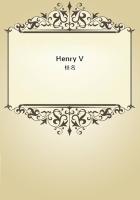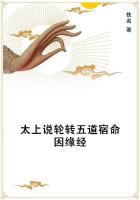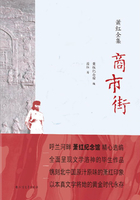Evie heard of her father's engagement when she was in for a tennis tournament,and her play went simply to pot.That she should marry and leave him had seemed natural enough;that he,left alone,should do the same was deceitful;and now Charles and Dolly said that it was all her fault.
"But I never dreamt of such a thing,"she grumbled."Dad took me to call now and then,and made me ask her to Simpson's.Well,I'm altogether off Dad."It was also an insult to their mother's memory;there they were agreed,and Evie had the idea of returning Mrs.Wilcox's lace and jewellery "as a protest."Against what it would protest she was not clear;but being only eighteen,the idea of renunciation appealed to her,the more as she did not care for jewellery or lace.Dolly then suggested that she and Uncle Percy should pretend to break off their engagement,and then perhaps Mr.Wilcox would quarrel with Miss Schlegel,and break off his;or Paul might be cabled for.But at this point Charles told them not to talk nonsense.So Evie settled to marry as soon as possible;it was no good hanging about with these Schlegels eyeing her.The date of her wedding was consequently put forward from September to August,and in the intoxication of presents she recovered much of her good-humour.
Margaret found that she was expected to figure at this function,and to figure largely;it would be such an opportunity,said Henry,for her to get to know his set.Sir James Bidder would be there,and all the Cahills and the Fussells,and his sister-in-law,Mrs.Warrington Wilcox,had fortunately got back from her tour round the world.Henry she loved,but his set promised to be another matter.
He had not the knack of surrounding himself with nice people--indeed,for a man of ability and virtue his choice had been singularly unfortunate;he had no guiding principle beyond a certain preference for mediocrity;he was content to settle one of the greatest things in life haphazard,and so,while his investments went right,his friends generally went wrong.
She would be told,"Oh,So-and-so's a good sort--a thundering good sort,"and find,on meeting him,that he was a brute or a bore.If Henry had shown real affection,she would have understood,for affection explains everything.But he seemed without sentiment.The "thundering good sort"might at any moment become "a fellow for whom I never did have much use,and have less now,"and be shaken off cheerily into oblivion.
Margaret had done the same as a schoolgirl.Now she never forgot anyone for whom she had once cared;she connected,though the connection might be bitter,and she hoped that some day Henry would do the same.
Evie was not to be married from Ducie Street.
She had a fancy for something rural,and,besides,no one would be in London then,so she left her boxes for a few weeks at Oniton Grange,and her banns were duly published in the parish church,and for a couple of days the little town,dreaming between the ruddy hills,was roused by the clang of our civilization,and drew up by the roadside to let the motors pass.
Oniton had been a discovery of Mr.Wilcox's--a discovery of which he was not altogether proud.It was up towards the Welsh border,and so difficult of access that he had concluded it must be something special.
A ruined castle stood in the grounds.But having got there,what was one to do?The shooting was bad,the fishing indifferent,and women-folk reported the scenery as nothing much.The place turned out to be in the wrong part of Shropshire,damn it,and though he never damned his own property aloud,he was only waiting to get it off his hands,and then to let fly.Evie's marriage was its last appearance in public.
As soon as a tenant was found,it became a house for which he never had had much use,and had less now,and,like Howards End,faded into Limbo.
But on Margaret Oniton was destined to make a lasting impression.She regarded it as her future home,and was anxious to start straight with the clergy,etc.,and,if possible,to see something of the local life.It was a market-town--as tiny a one as England possesses--and had for ages served that lonely valley,and guarded our marches against the Kelt.In spite of the occasion,in spite of the numbing hilarity that greeted her as soon as she got into the reserved saloon at Paddington,her senses were awake and watching,and though Oniton was to prove one of her innumerable false starts,she never forgot it,nor the things that happened there.
The London party only numbered eight--the Fussells,father and son,two Anglo-Indian ladies named Mrs.Plynlimmon and Lady Edser,Mrs.Warrington Wilcox and her daughter,and lastly,the little girl,very smart and quiet,who figures at so many weddings,and who kept a watchful eye on Margaret,the bride-elect,Dolly was absent--a domestic event detained her at Hilton;Paul had cabled a humorous message;Charles was to meet them with a trio of motors at Shrewsbury.Helen had refused her invitation;Tibby had never answered his.The management was excellent,as was to be expected with anything that Henry undertook;one was conscious of his sensible and generous brain in the background.
They were his guests as soon as they reached the train;a special label for their luggage;a courier;a special lunch;they had only to look pleasant and,where possible,pretty.Margaret thought with dismay of her own nuptials--presumably under the management of Tibby."Mr.Theobald Schlegel and Miss Helen Schlegel request the pleasure of Mrs.Plynlimmon's company on the occasion of the marriage of their sister Margaret."The formula was incredible,but it must soon be printed and sent,and though Wickham Place need not compete with Oniton,it must feed its guests properly,and provide them with sufficient chairs.Her wedding would either be ramshackly or bourgeois--she hoped the latter.Such an affair as the present,staged with a deftness that was almost beautiful,lay beyond her powers and those of her friends.















